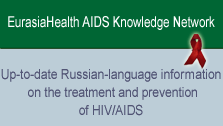Resources for Health Professionals and Patients
| Serious Bacterial Infections in Children with HIV | |
Attached file: |
 (Russian, 392.9 kb)
Serious Bacterial Infections in Children with HIV
(Russian, 392.9 kb)
Serious Bacterial Infections in Children with HIV
|
Link to document(s) | http://www.hivinsite.com/In... |
Author(s): | Jankelevich S. |
Document type: | Monographs, Reports, and Book Chapters |
Language: | English, Russian |
Original language of document: | English |
Primary area(s) of focus: | HIV/AIDS |
Secondary areas of focus: | Emergency financial assistance, Treatment of children |
Submited by: | Victor Stanilevskiy |
Material written specifically for patients: | No |
Date of entry: | September 12, 2006 |
Pages: | 19 |
| Numerous defects in the immunologic system are responsible for the increased vulnerability of HIV-infected children to serious bacterial illness. These include defects in the cell-mediated (T-cell) and the humoral (B-cell) arms of the immune system; phagocytic abnormalities including decreases in neutrophil number, multiple defects in neutrophil function, and impairment in macrophage and monocyte function; functional asplenia; and defects in 3 components of complement. These defects become more severe as the child's HIV disease progresses. Extrinsic factors in industrialized countries that increase susceptibility to infection in HIV-infected children include frequent use of broad-spectrum antibiotics, frequent hospitalizations, and the use of indwelling intravascular catheters that disrupt the integrity of skin. Major factors in developing countries include malnutrition, micronutrient deficiencies, and lack of adequate medical care. The results of these defects are increased susceptibility to infection with encapsulated bacteria beyond age 2 years, increased nasopharyngeal colonization rates for Streptococcus pneumoniae and Haemophilus influenzae, recurrent infections with the same bacterial species, increased susceptibility to infections with bacteria unusual in immunocompetent hosts, and increased morbidity and mortality. | |
Overall user rating: | Not yet reviewed |

 Print-friendly View
Print-friendly View

